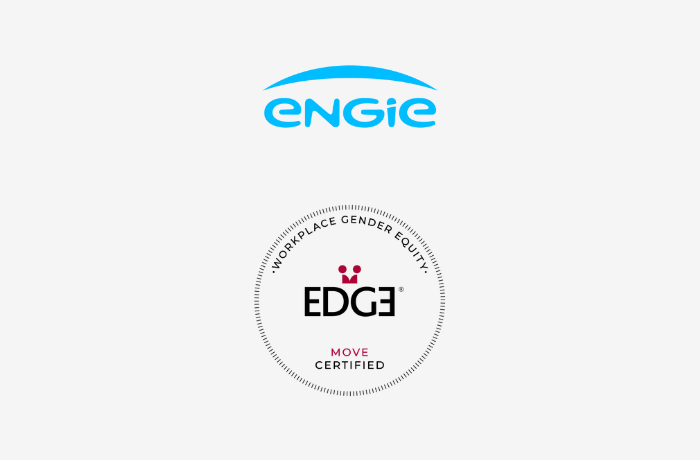When President Trump instructed U.S. embassies overseas to send letters to their local contractors, demanding they certify that they do not run any diversity, equity, and inclusion (DEI) programs violating his executive orders, the message was chilling in its intent and ambition—and alarming in its illegality. Beyond the unmistakable hostility toward DEI, the act is just one example of a broader effort to undermine democratic norms and evade legal accountability.
In our recent conversations with Prof. Judith Resnik, the Arthur Liman Professor of Law at Yale Law School, and Chai Feldblum, a former Commissioner of the U.S. Equal Employment Opportunity Commission (EEOC), former law professor, and long-time distinguished civil rights advocate, they reflected on the emerging pattern: the attack on institutional and legal safeguards by the executive branch is not about a single issue but part of a systematic campaign. The aggression against DEI in the workplace is part of a larger effort to undercut the independence and integrity of public and private institutions and to prevent responsible governance in—and beyond—the U.S.
Claiming to be Law Without Being Lawful
Professor Resnik, a legal scholar and a member of the EDGE Certified Foundation’s Academic and Scientific Council, explained that this administration is sidestepping law itself. She points to the sidelining of the Office of Legal Counsel (OLC) that sits within the US Department of Justice, and which historically vets executive actions for legality. Under normal functioning, the OLC acts as a check within the executive branch in an effort to ensure that presidential directives are rooted in legal authority. But now, its role is being subverted—or ignored altogether. Statutory and regulatory obligations are skipped as proclamations issues that do not follow the rules laid out. Those actions are not accompanied by explanations about why the executive refuses to proceed through lawful challenges.
The embassy letters sent to overseas contractors are bureaucratic overreach that is part of a strategy designed to chill expression, deter inclusion efforts, and signal to U.S. and international audiences that the government’s hostility toward DEI extends beyond borders. As Professor Resnik put it, this posture is not grounded in law—in and outside the U.S. And, the bullying is weaponizing government so as to interrupt efforts to improve fairness and equity for all participants in workplaces, in education, and in public life.
Staying the Course
The effort to erode legal norms needs to be met with a collective response. As Professor Resnik urged: “not to be daunted, not to be oblivious.” This idea should guide every business leader and citizen who believes in lawful governance and inclusive opportunity. It echoes the resilience of the civil rights movement, the women’s rights movement, and the decades-long social movements that have transformed the American workplace.
The history of progress in workplace protections in the U.S. shows that diversity, fairness, and inclusion are neither partisan ideas nor fleeting trends. They are a pillar of strength that has helped fuel a thriving economy. Organizations large and small have invested in DEI not because it’s politically fashionable, but because it works. Diverse teams outperform. Inclusive cultures retain talent. Fair and equitable systems foster innovation. Across the close to 300 organizations in 61 countries and 32 industries, that are currently EDGE Certified—we see the evidence: Integrated DEI strategies create competitive advantage.
Yet we are witnessing a deliberate attempt to divorce diversity from merit, rather than to appreciate that people and organizations functioning with fairness and equity produce merit. Thus, it is more important than ever for organizations to stand firm. Those who can measure their progress, demonstrate their impact, and operate with transparency and accountability will be best equipped to prosper during times when these sound business practices are being assaulted. As the last weeks of economic turbulence related to trade make plain, the administration picks and chooses among markets and enterprises without respect for the interdependencies of today’s businesses.

We are witnessing a deliberate attempt to divorce diversity
from merit, rather than to appreciate that people and
organizations functioning with fairness and equity produce merit.
The Lifeblood of Democracy
At its core, democracy requires that we are able to disagree—openly, constructively, and with mutual respect. It requires us to hear our critics, to understand different perspectives, and to seek solutions in the face of complexity. Professor Resnik reminded us of the example of former Costa Rican President and Nobel Laureate Óscar Arias, who insisted that a functioning democracy thrives on civil disagreement. That diplomat recently had his U.S. visa revoked; the timing came shortly after having publicly criticized the current U.S. President. In the last few days, after Harvard University declined to accede to the president’s demands, the government intensified attacks on its funding. These are but two examples of retaliatory actions that make plain that exchanges of ideas and free expression, which are central to democracy, are under siege. Generating fear is the point, but fear is not how organizations and employees thrive.
Hope comes from focusing on the many voices raised in opposition. More than 500 law firms stood in solidarity with their colleagues resisting unlawful executive actions to compel lawyers to conform to the administration’s views or lose access to government contracts and buildings. Ten former EEOC officials have stepped forward with a guiding statement, offering employers expert insight on how to confidently design and uphold lawful DEI practices.
In normal times, speaking up, speaking out, and standing firm would not be described as “courage” but just what responsible citizens do. Yet now, with the barrage of retaliatory executive orders that have tenuous relationships to legal mandates, the word “courage” needs to be used. The many examples of civic courage reflect the importance of professional networks grounded in integrity. In boardrooms worldwide, there is profound interest in building a fairer, more inclusive society. The U.S. administration’s attempt to turn back time will not do so. Years of innovation grounded in research and predicated on commitments to equality provide a solid foundation that will withstand such attacks.
A Global Perspective
The implications of this moment extend beyond the borders of the U.S. As the U.S. has been the world’s largest economy and most influential democracy, the U.S. has had a platform to set a tone that reverberates globally. But when Washington vilifies diversity, fairness, and inclusion, it should lose that place. DEI ought not require a defense; nor should democratic values. Rather than being defensive, leaders around the globe in all sectors need to continue their commitments to inclusion, fairness, and equity as part of their business principles. They are ideas and practices that are the connective tissue that holds a society together—economically, socially, and morally.

Rather than being defensive, leaders around the globe in all
sectors need to continue their commitments to inclusion,
fairness, and equity as part of their business principles.
We Must Stand Together
We do not know how much more harm will be done before the tide turns. We do not know how many in the U.S. President’s own party will push back. But we do know this: history rewards those who stay the course.
The time for quiet concern has passed. It is time for all of us to stand for the rule of law, fairness, inclusion, and the democratic principles that underpin them.


